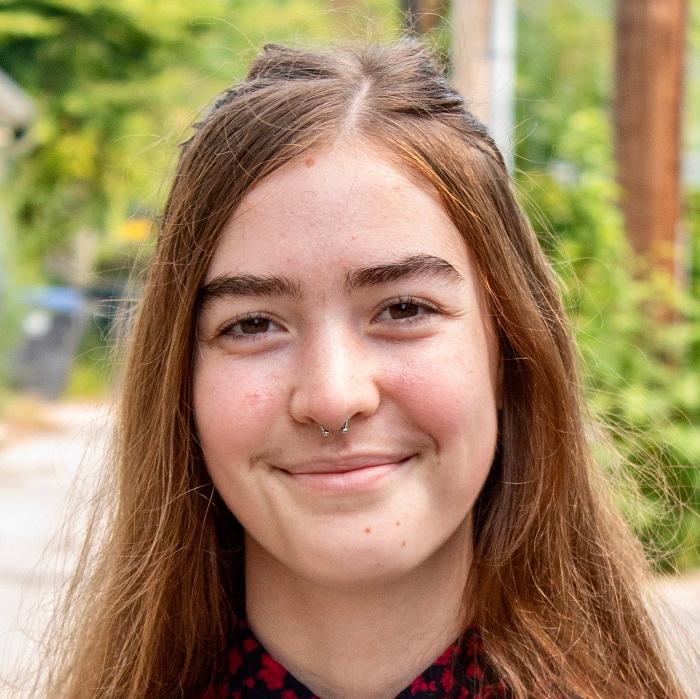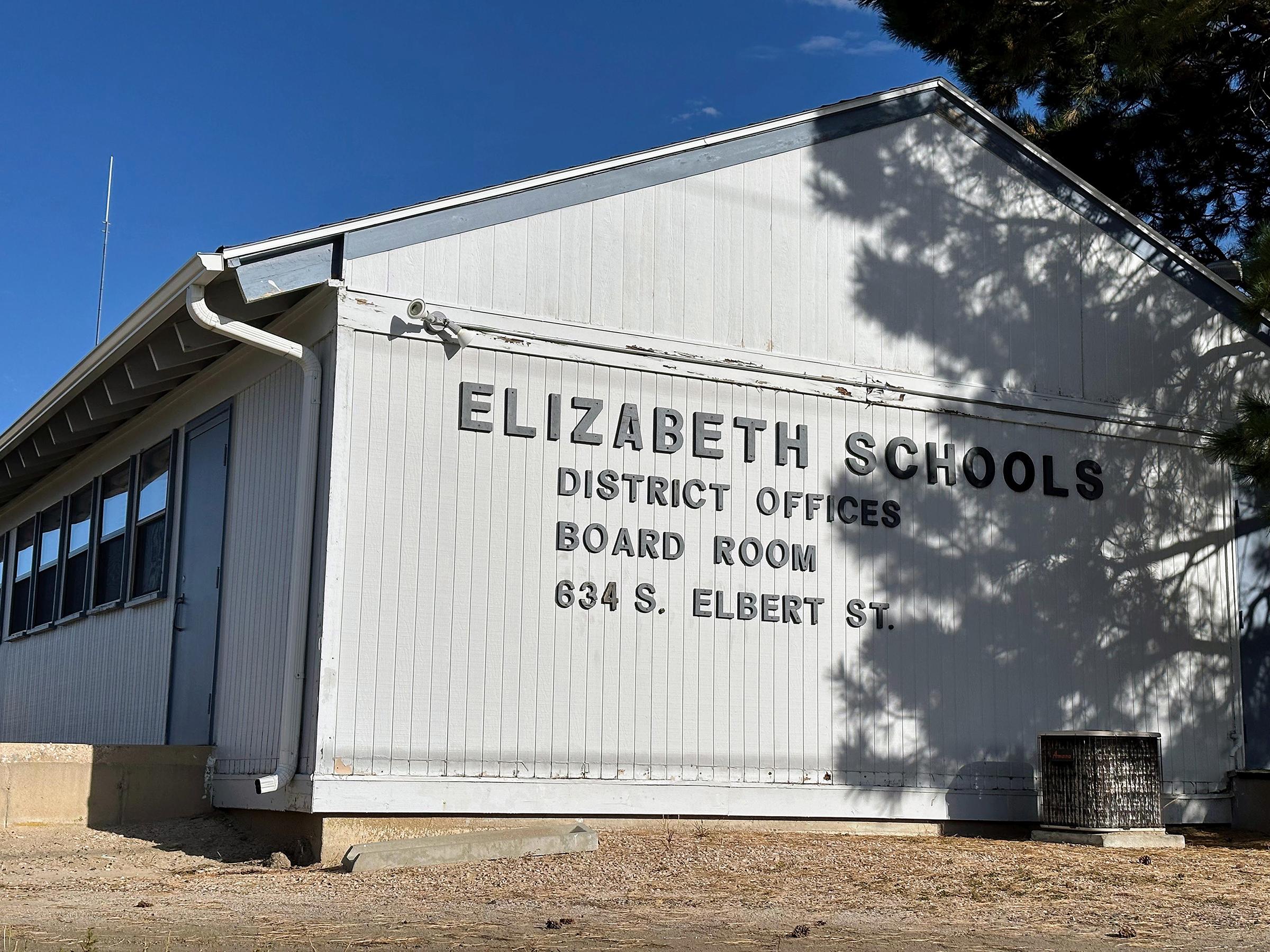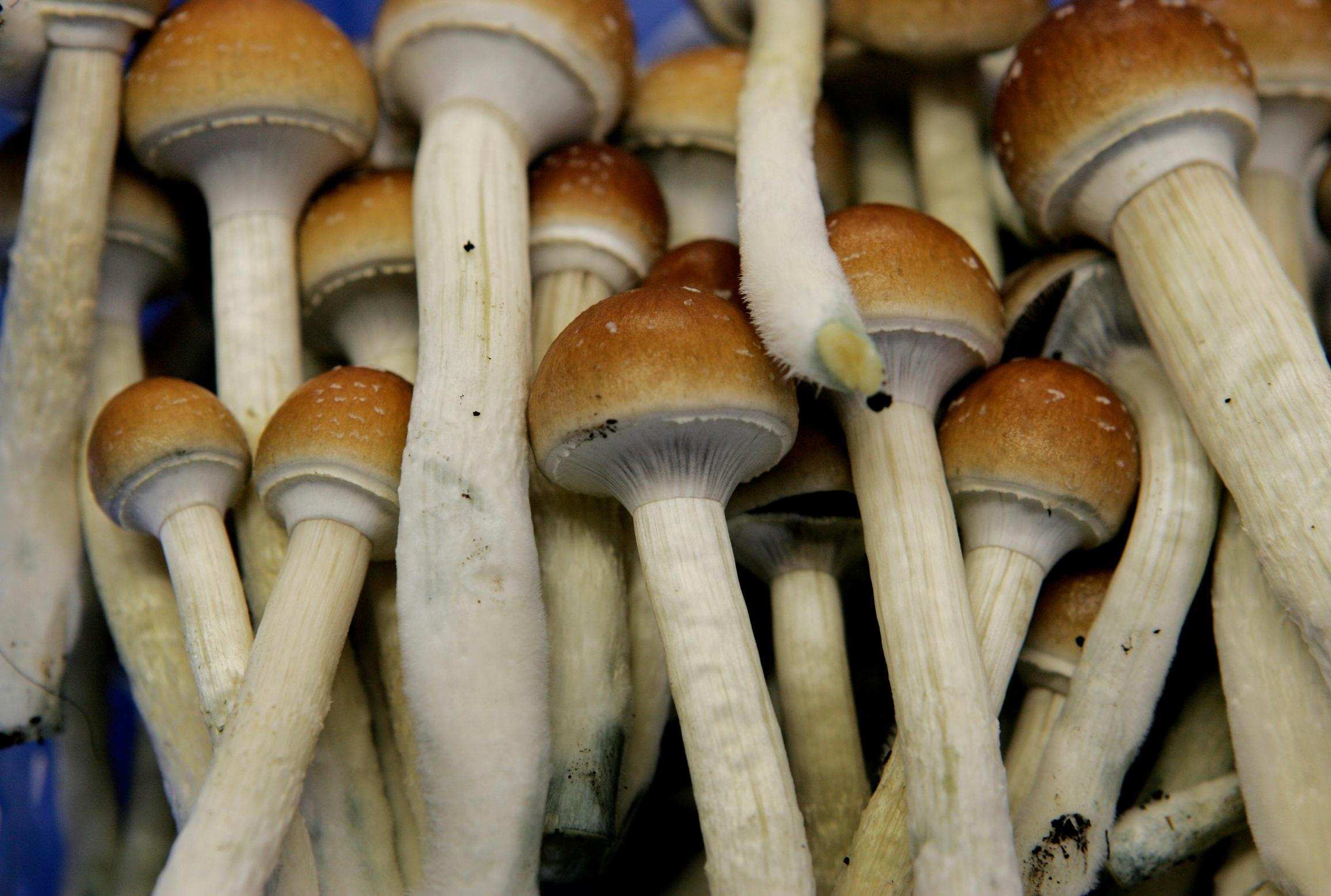
When Denver resident Connie Boyd found out Coloradans will vote on whether to legalize psychoactive mushrooms this fall, she felt incredibly angry — and worried.
“My fear is that (Colorado is) going to legalize mushrooms and 10 years from now, there’s going to be a bunch of really sick people,” she said. “And the state 10 years from now is going to say: ‘Oh, gee, we’re sorry.’”
Boyd voted for cannabis legalization a decade ago. But her views changed after her son — a star athlete and student — reacted badly to trying edibles, an experience she said triggered lasting consequences.
“He had a severe psychotic episode,” she said. “At the age of 29, he was living in a nursing home for people with schizophrenia. It’s a very sad thing.”
Some studies have linked cannabis use to an increased risk of developing psychosis, according to the National Institute on Drug Abuse, although the relationship between the two appears to be complicated. While cannabis and psychoactive mushrooms differ in their chemical properties and effects, Boyd said after her family’s experience, there is no way she will vote to legalize mushrooms.
With the election a few months away, grassroots opposition to the Natural Medicine Health Act is developing, as some voters and law enforcement officials point to potential risks. But organizers of the ballot initiative argue creating a legal framework for mushrooms would actually benefit public health and safety.
Supporters say legalization will make mushroom use safer
Psilocybin — the hallucinogenic compound found in certain strains of mushrooms — is a Schedule I drug under federal law, meaning it’s considered to have high potential for abuse and no current medical use. Researchers, though, generally believe it to be non-addictive and there are numerous studies underway on its potential benefits in low doses. Other Schedule I drugs include heroin, LSD, ecstasy and cannabis.
If a majority of Coloradans vote yes on the NMHA ballot initiative, it would no longer be a state crime for people over 21 years old to grow, possess or gift psilocybin mushrooms. It would not allow dispensaries or other retailers to sell hallucinogens but would set up a system for state-regulated facilities, where trained staff could administer mushrooms and assist people through the experience.
This approach would make using mushrooms safer, said initiative organizer Kevin Matthews.
“Individuals know they’re going to be working with a trained and licensed individual,” he said. “When we’re working underground, we don’t always know if a person actually has the qualifications they claim to have.”
The proposal would also create a board that could eventually recommend other plant-based hallucinogens for legalization, although the decision would be in the hands of the state.
Beyond their hopes for health benefits, supporters also say the measure will ensure people don’t face incarceration or other potentially damaging legal consequences.
“The fact that some of my friends are still in prison ... for creating medicine that’s now used for healing is a crime,” said Randy Chase of Denver.
Chase spent much of the 2000s in and out of Colorado correctional facilities on LSD charges. Though LSD isn’t eligible for legalization under this initiative, Chase said that he supports people’s ability to use psychedelics in general, especially for healing.
“A lot of the reason that I fell into a pattern that resulted in me going to prison was because of childhood sexual trauma,” he said. “The (Department of Corrections) never did anything to heal that trauma, despite that being the root cause of my criminal involvement.”
He believes psychedelic-assisted therapy should be an option for those who want it; for him, it was therapy, not punishment, that helped him finally get out of the cycle of incarceration.
Fears for youth use
While the initiative limits use to people over 21, it also envisions a non-punitive approach to younger people who are caught possessing or giving away mushrooms. Under the NMHA, they would face no more than four hours of drug counseling and a petty offense charge, which is the least serious category of crimes.
Older growers who fail to keep their mushrooms away from young users could face stiffer consequences: a fine of up to $250, as well as, the initiative says, “any other applicable penalties.”
NMHA organizer Veronica Lightning Horse Perez said that some minors will try mushrooms — regardless of whether they’re illegal — but they shouldn’t risk long-term legal consequences because of it. As a mom herself, she said parents have a responsibility to educate their children about the impacts of different substances.
“I can monitor them as closely as possible, but I’m a human being. I’m not awake 24 hours a day,” she said. “I can have faith that my kids are going to make a good decision, if I teach them, not scare them.”
But Dawn Reinfeld, a mom of teenagers, believes legalization will lead youth to underestimate the risk of consuming psilocybin.
“No matter what this initiative tries to do or says to do, it's going to end up in the hands of our kids,” she said. “And they're going to think that because it's legal, it's safe.”
Reinfeld is also the executive director for Blue Rising Together, a nonprofit opposed to high-THC cannabis products. She sees Colorado’s experience with cannabis legalization as a reason for caution. Last year, state lawmakers moved to restrict sales of concentrated products out of widespread concern that buyers in their 20s were re-selling them to underage users (although a recent survey shows youth use overall is down in Colorado).
Former U.S. Attorney Jason Dunn was the state’s top federal prosecutor while Colorado’s legal cannabis industry was booming after legalization. He doesn’t support legalizing another substance like psilocybin.
“We're gonna put ourselves on a map again for being ‘the drugs state,’” Dunn said. “I don’t think we want to do that.”
And he dismissed the provisions around youth access as a “paper tiger” with no deterrent power.
The progress of research
Humans have a long history of psilocybin mushroom use, and some tribes, like the Mazatec people, have built deep knowledge of the fungi and continue to use it ceremonially.
Western scientists began investigating psilocybin in the late 1950s, but criminalization of psychedelic mushrooms largely halted studies in the U.S. until the 2000s.
Since then, some research has suggested that the compound might benefit those suffering from depression, anxiety and PTSD. However, this research is still in the early stages.
David Hellerstein, a professor of clinical psychiatry at Columbia University, co-authored a review of three decades of recent psychedelic research and found just 11 clinical trials of psilocybin, with 257 people studied total.
“The quality of the studies is variable,” he said. “The findings are interesting and encouraging. But there's a lot of holes and a lot of gaps.”
Hellerstein is also a researcher on an ongoing FDA-designated study on psilocybin and treatment-resistant depression. He said the results so far are significant, given how hard it is to address the condition, but not a total “home run.”
“The sort of simple-minded thing is: Mushrooms are going to save the world,” he said. “But having treated several dozen people with the psilocybin compound, it’s a challenge to manage the care of these people.”
The Food and Drug Administration recently designated psilocybin a “breakthrough therapy” but has not broadly approved its use. Earlier this year, the American Psychiatric Association stated that there is “currently inadequate scientific evidence for endorsing the use of psychedelics to treat any psychiatric disorder” outside of approved studies.
For opponents of the initiative, the lack of conclusive research means the push for legalization is premature.
“If you believe it's medicine, prove it’s medicine: Go through the trials, go through the rigorous standards that the FDA does, and then introduce it to the marketplace,” Reinfeld said. “But until then, we don’t need to jump around the regulatory frameworks that we know work in our country.”
However, initiative backers argue the federal government will take too long to act, denying people access to a compound whose benefits they believe in.
Matthews said that his own life changed when he tried psilocybin mushrooms. After leaving West Point, he said he felt lost and struggled with depression. He tried therapy, yoga, self-help books, and meditation — but he didn’t feel a major shift until the mushrooms.
“There is no better time,” he said. “We deserve access to these medicines today. We can’t wait.”
The impact on public safety
When it comes to drug enforcement nationally, psilocybin is far down the list, compared to substances like methamphetamines, cocaine and cannabis.
A recent report by the National Forensic Laboratory Information System found that mushrooms made up less than 1 percent of the samples law enforcement sent for testing.
As for enforcement in Colorado, it’s difficult to obtain statewide psilocybin crime data, as police departments track cases involving the compound differently — or not at all.
Matthew Stoneberger, president of the Colorado Drug Investigators Association, said arrests for psilocybin possession and distribution are relatively rare. Still, he is concerned that legalizing or decriminalizing mushrooms would be risky.
“They are still heavily used by drug traffickers to sell like any other controlled substances,” Stoneberger said. “I can also tell you what — in my experience, we don't run into people who are claiming those substances are for medicinal use.”
The NMHA wouldn’t allow for commercial sale of mushrooms, either in shops or person-to-person — instead, it sets up a model where people could cultivate mushrooms for personal use and give them to others. But Dunn, the former U.S. Attorney, thinks that would just give cover to an underground market.
“How are we going to know if they’re selling it without a concerted enforcement effort?” Dunn said. “It’s really opening it up to widespread use for any reason, even though they tried to couch it under the guise of natural healing and mental health issues.”
Dunn points to Denver’s partial decriminalization of mushrooms as an example of how complicated enforcement can be when a substance enters quasi-legal territory. He remembers the U.S. Attorney’s office prosecuting a mushroom grower and distributor who had given numerous media interviews without making much effort to hide his identity. The man pleaded guilty to possession with intent to distribute, but the judge only sentenced him to probation, saying she didn’t believe prison time was warranted.
In contrast, Matthews believes Denver’s experience is a case study in success. He helped organize the city’s decriminalization effort — and led a review of the policy after the ordinance passed.
The review group, which included representatives from law enforcement and city government, unanimously concluded the ordinance didn’t lead to any significant public safety threats.
In the past five years, Denver’s district attorney has dismissed most cases that included psilocybin or psilocin charges — including possession, manufacturing, or distribution — according to data from the office. And since the ordinance went into effect mid-2019, the number of cases filed in the first place has dropped too.
Denver has not fully decriminalized — rather, law enforcement are required to treat the personal use and possession of psilocybin mushrooms as their lowest priority. So Denver police have continued to discover and seize mushrooms as they investigate other crimes, like theft or assaults.
In cases where the Denver Police Department seized mushrooms, the associated arrests held relatively steady before and after the measure. From 2017 to 2021, police have averaged about 59 of these arrests per year.
Matthews believes this pattern supports his argument that legalization will not lead to an increase in crime in general — because despite decriminalization in Denver, mushroom users do not appear to be breaking the law any more frequently than before.
“Most people are using natural medicines in responsible ways to self-treat their own mental health issues,” he said. “I don't see any reason why that wouldn't continue in a decriminalized or regulated context.”
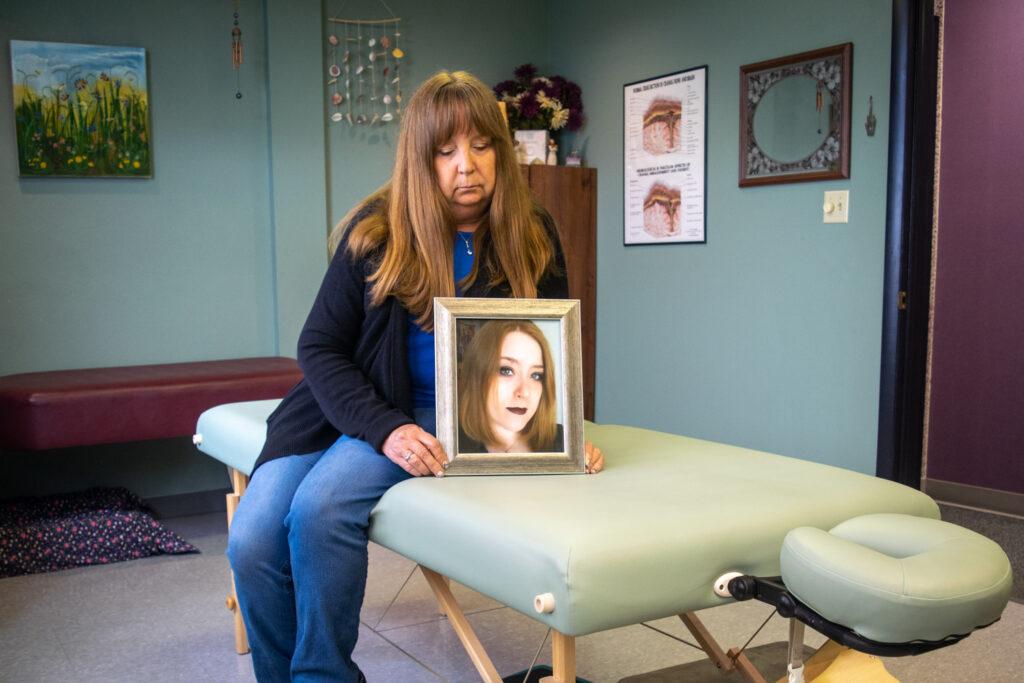
‘My daughter didn’t recognize the very dire situation’
With psychedelics, even proponents acknowledge users can have difficult experiences in the wrong circumstances. In some cases, those situations can lead to extreme consequences.
Hellerstein, the researcher, said that people on psilocybin do not generally present a high risk to others. But he also noted that clinical studies on the compound tend to exclude people who may react badly to it, so there’s not much solid data on the frequency of negative experiences.
And sometimes, things can go terribly wrong — a fact one Grand Junction mother knows all too well.
On the morning of May 14, 2017, Sharon Anable’s world changed. She woke up to Facebook posts about a shooting on her daughter’s street in the nearby community of Clifton. She texted her daughter to check in, but received no reply. Then she heard a knock on her door.
It was the local coroner.
“When he showed up, I knew it was my daughter. I said to him: ‘It's Heather, isn’t it?’ And he just nodded his head,” she recalled.
Heather Anable and her boyfriend, Aleksandr Kolpakov, had both had taken psychoactive mushrooms the night before, according to a witness who was on a video call with them.
Sometime after that, Kolpakov entered the apartment next door. The man living there found Kolpakov naked and called Anable for help, according to an investigator’s affidavit. Anable then attempted to calm her boyfriend down and took him back to her apartment, as the neighbor later told deputies.
“(Kolpakov) was saying he was seeing demons and Heather was trying to kill him,” said lead investigator Peter Burg. “He also was talking about (how) the mushrooms were poisoned.”
Not long after that, Kolpakov shot Anable multiple times, killing her.
Kolpakov’s toxicology results came back negative for psilocybin, but the district attorney’s office said there were some testing difficulties, and all other evidence indicated that he had taken mushrooms. Investigators also learned that Kolpakov had had a bad experience with mushrooms the week before.
“It was a case that we wouldn’t have had to deal with, but for the mushrooms,” said David Waite, chief deputy district attorney of Mesa County. “His consumption of mushrooms was irresponsible, and it’s what led to some very bizarre behavior on his part and ultimately led to her death.”
Sharon Anable believes that her daughter’s own altered state left her more vulnerable.
“Under the influence of (the mushrooms), my daughter did not recognize the very dire situation and real danger she was in,” she said. “Someone had reported that her last words were: ‘I can’t believe.’”
A judge sentenced Kolpakov to 40 years after he pleaded guilty to manslaughter and first-degree assault.
Anable continues to do what she can to recover and honor her daughter’s memory.
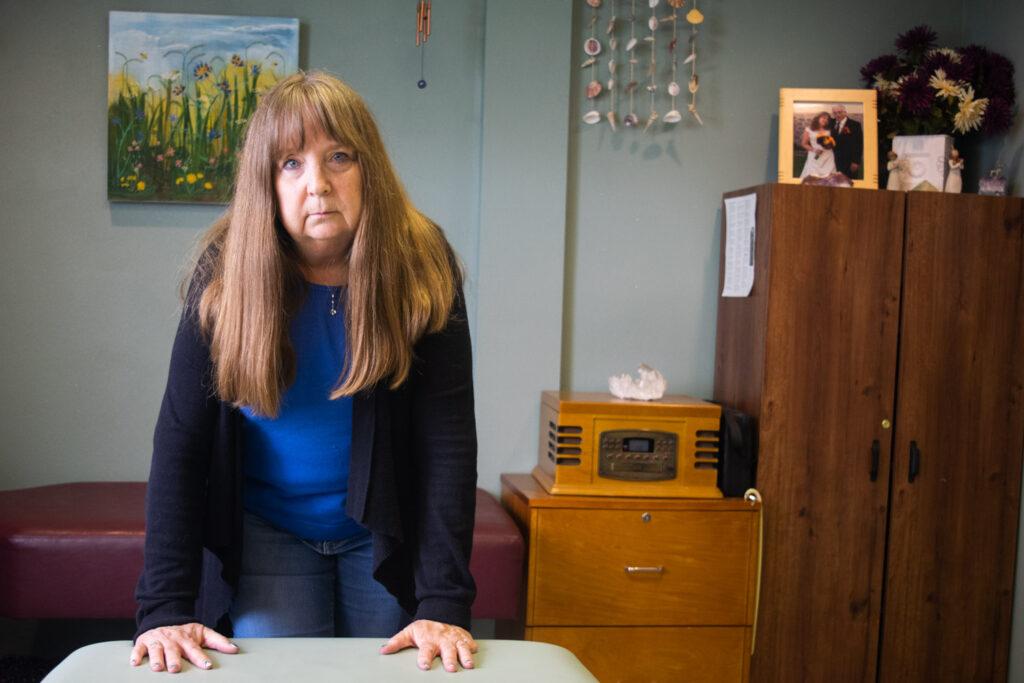
“Heather was very much a kind and compassionate soul,” she said. “She was very artistic, and she had a true gift of healing. One of the things that makes me most sad is that she’s no longer able to share that gift.”
Since learning that the Natural Medicine Health Act will be on the fall ballot, Anable said she has been moved to speak out.
“It did trigger me,” she said. “I had a lot of anger, a lot of frustration over this.”
Anable worries about people who will try to self-medicate and have bad reactions. She also fears how the legal language could potentially affect Kolpakov’s case when he gets out – the initiative says that by itself, using mushrooms cannot be a “basis for punishing or otherwise penalizing a person currently under parole,” meaning it’s possible he could use mushrooms again without facing consequences.
When Perez and Matthews, the proponents for the initiative, heard about Anable’s experience, they both expressed deep grief for her loss, but said they hoped the measure would galvanize people to use mushrooms in safer environments, with skilled assistants to monitor them.
“There is no good enough answer when it comes to this. There's nothing that I can say or do on either side of the map that will make this situation okay,” Perez said. “But I am bound and determined to do everything within my power to make sure that people have enough education so that we can do everything possible to make sure something like this never happens again.”
Anable said she wants Coloradans to vote no. And if they don’t, she hopes they will keep in mind psilocybin’s potential risks.
“I want Colorado voters to know and understand that although some people may claim they experienced benefits from this, (mushrooms) are not a magic cure or magic pill for certain mental health illnesses,” she said. “There can be dire negative consequences.”
Ballots for the midterm elections will be mailed mid-October. Election day is Nov. 8.
